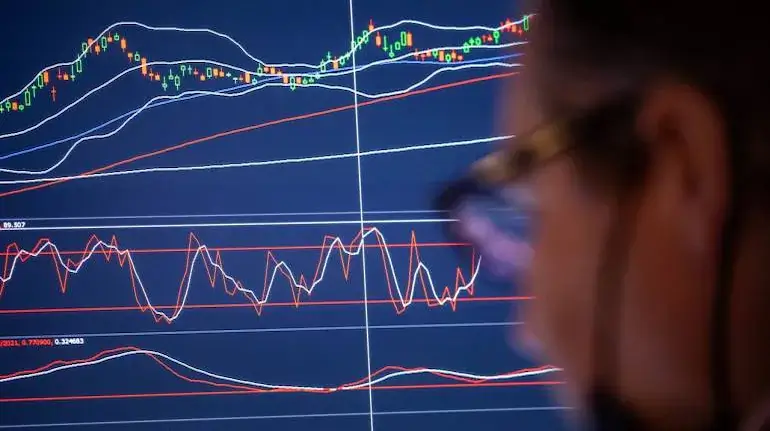Introduction
The world of trading can be a tricky one to navigate, with markets constantly changing and economic indicators fluctuating on a daily basis. However, by staying up to date with the latest news and trends, you can get a head start on your trading day and make more informed decisions about where to invest your money.
In this article, we’ll be taking a closer look at the top 15 things you need to know before the opening bell each day. From market trends to economic indicators, we’ll cover everything you need to stay ahead of the game and make smart investments.
So, without further ado, let’s dive into the trade setup for today: Top 15 things to know before the opening bell.
1. Stock Futures
One of the first things to look at before the opening bell is the stock futures market. This will give you an idea of how the market is likely to open and which direction stocks are likely to move in.
2. Overseas Markets
Next, it’s important to take a look at overseas markets. This can give you an idea of how the global economy is performing and how this might impact the markets closer to home.
3. Economic Indicators
Economic indicators such as GDP, unemployment rates, and inflation can all have a significant impact on the stock market. Keep an eye on these indicators to get a better understanding of the overall health of the economy.
4. Earnings Reports
Earnings reports can be a great indicator of how well a company is performing. Take a look at any major earnings reports due to be released that day to get a better idea of which stocks are likely to perform well.
5. Company News
In addition to earnings reports, keeping an eye on company news can be crucial to making informed investment decisions. Look out for news of mergers and acquisitions, new product launches, or any other major announcements that could impact a company’s stock price.
6. Analyst Recommendations
Analyst recommendations can also be useful when it comes to making investment decisions. Take a look at any recommendations from major analysts to get a better idea of which stocks are worth investing in.
7. Technical Analysis
Technical analysis involves studying past market data to identify patterns and trends. This can be useful when it comes to making predictions about which way the market is likely to move.
8. Market Sentiment
Market sentiment refers to the overall feeling or mood of the market. This can be influenced by a wide range of factors, from economic indicators to political events. Keep an eye on market sentiment to get a better idea of which way the market is likely to move.
9. Trading Volumes
Trading volumes can be a good indicator of how much interest there is in a particular stock. High trading volumes can indicate that a stock is likely to perform well, while low trading volumes could suggest the opposite.
10. Market Volatility
Market volatility refers to the amount of fluctuation in the market. High volatility can be a sign of uncertainty and risk, while low volatility can indicate a more stable market.
11. Sector Performance
Different sectors of the market can perform differently depending on a wide range of factors. Keep an eye on sector performance to get a better idea of which sectors are likely to perform well and which might be struggling.
12. Options Activity
Options activity can be a good indicator of which way the market is likely to move. Keep an eye on any unusual activity in the options market, as this can indicate that traders are expecting a big move in a particular stock.
13. Political Events
Political events can have a significant impact on the stock market, particularly if they relate to economic policy or international trade. Keep an eye on any major political events that could impact the markets.
14. Natural Disasters
Natural disasters can also impact the stock market, particularly if they affect key industries such as energy or agriculture. Keep an eye on any major natural disasters that could impact the markets.
15. Your Own Investment Strategy
Finally, it’s important to have your own investment strategy in place before the opening bell. This should take into account your own risk tolerance, investment goals, and overall portfolio. Stick to your strategy, even if the markets are volatile, and remember to always invest with a long-term perspective.
Conclusion
By staying up to date with the top 15 things to know before the opening bell each day, you can give yourself a head start on your trading day and make more informed investment decisions. From stock futures to economic indicators, earnings reports to political events, keeping a close eye on the markets can help you to achieve your investment goals and build a successful portfolio over the long term. So, don’t forget to check the trade setup for today: Top 15 things to know before the opening bell each day, and use this information to your advantage when it comes to making investment decisions.
FAQs
- What are stock futures? Stock futures are financial contracts that allow investors to buy or sell stocks at a predetermined price and date in the future. They are often used as a way to hedge against potential losses or to speculate on future market movements.
- How can I keep up to date with market trends and economic indicators? There are a variety of ways to stay up to date with market trends and economic indicators, including reading financial news websites, following financial analysts on social media, and subscribing to financial newsletters.
- What is technical analysis? Technical analysis involves studying past market data to identify patterns and trends. This can be useful when it comes to making predictions about which way the market is likely to move.
Read more about:‘Will resign if…’: Mamata Banerjee’s dare over Trinamool’s ‘national’ party status










